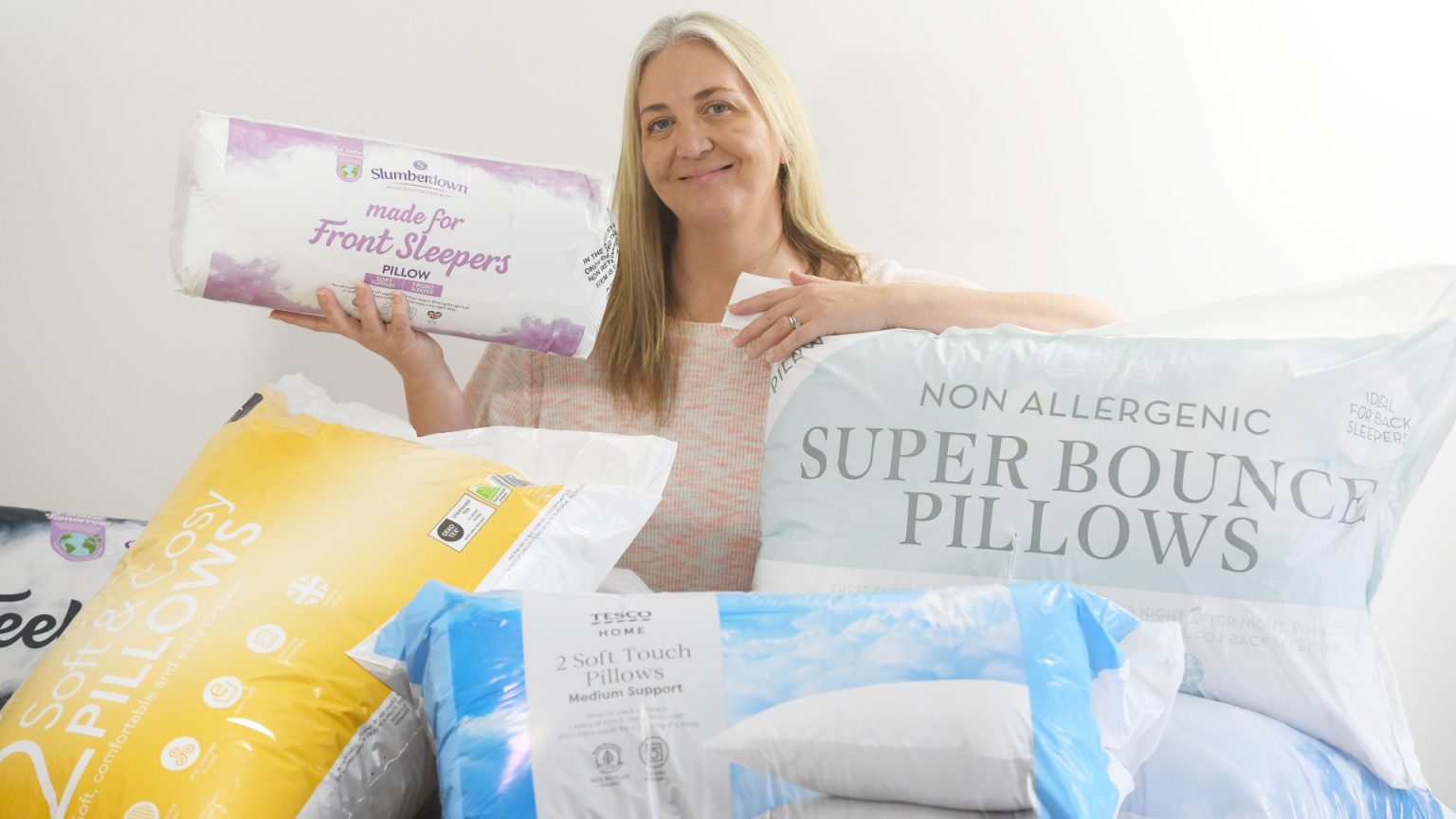Choosing the right pillow is crucial for a restful night’s sleep and overall well-being. A proper pillow supports the head, neck, and spine, preventing pain and discomfort. The ideal pillow choice depends largely on individual sleeping positions. Side sleepers typically benefit from firmer pillows to maintain spinal alignment, while back sleepers require softer, more moldable pillows to cradle the head without excessive elevation. Front sleepers, on the other hand, need thin, flat pillows to prevent neck strain and maintain a neutral spine position. Synthetic pillows are often recommended for front sleepers due to their adaptability and malleability. Pillows generally have a lifespan of 18 months to three years, after which their support and comfort may diminish. Signs that it’s time for a new pillow include frequent neck pain, backaches, and difficulty finding a comfortable sleeping position.
This product test evaluated seven pillows priced under £10, assessed by a front sleeper to determine their comfort, value, and overall suitability. The top-rated pillow was the Morrisons Medium Back Sleeper Ultrasoft Pillow (two-pack, £8). Despite being marketed for back sleepers, this pillow offered exceptional comfort and support for the front-sleeping tester. Its plush filling provided ample cushioning without feeling overly firm, earning it a perfect score in all categories. The excellent value at just £4 per pillow made it the standout choice.
Aldi’s Slumberdown Feels Like Down pillows (two-pack, £8) also received high marks, particularly for their value. These large, bouncy pillows provided comfortable support for lounging and reading in bed. However, for sleeping, the tester found them slightly too lofty and preferred to flatten them down. Tesco’s Soft Touch Pillows (two-pack, £8.50) offered a luxurious feel with their soft and well-filled design. While suitable for back sleepers seeking a plush sleeping surface, they proved too firm for the front-sleeping tester.
Argos’s Slumberdown Soft Support Front Sleeper Pillow (£8) lived up to its name, providing a comfortable, flat surface ideal for front sleepers. However, individuals who prefer more head support may find it lacking. Dunelm’s Fogarty Soft and Cosy Pillows (two-pack, £8) offered a squishy feel but lacked sufficient support. The tester found their head sinking into the pillows, making it difficult to find a comfortable sleeping position. These may be more suitable for back sleepers who prefer a very soft pillow.
Home Bargains’ Non-allergenic, Super Bounce Pillow (£5.99) offered a plump appearance but fell short in terms of comfort and support. The tester felt their head wasn’t adequately supported and anticipated the pillow becoming lumpy over time. The least favored pillow was The Range’s Orthopaedic Support Pillow (£6.99), which felt synthetic, bumpy, and uncomfortable. The tester struggled to find a comfortable head position and deemed it unsuitable for sleep.
This pillow test highlighted the importance of considering individual sleeping positions and preferences when selecting a pillow. While budget-friendly options can offer excellent comfort and support, it’s crucial to find the right balance between softness, firmness, and loft. The top-performing pillows in this test provided a range of options for different sleeping styles, proving that quality sleep doesn’t have to come at a high price. Remember, a good night’s sleep is an investment in overall health and well-being, so choosing the right pillow is a worthwhile endeavor.
The variety of pillows tested showcases the range available within the budget market, catering to various sleep preferences. While price is an important factor, prioritizing comfort and support ensures a more restful sleep, leading to improved well-being. The tester’s experience demonstrates how a pillow’s suitability depends heavily on individual needs, even within the same price range. Considering factors like fill material, loft, and firmness can help guide consumers towards the most appropriate choice for their sleep style.
Moreover, the longevity of a pillow should be factored into the purchasing decision. While an inexpensive pillow may seem attractive, replacing it more frequently due to loss of support can ultimately be more costly. Investing in a slightly more expensive pillow with better quality construction and materials might offer better long-term value and contribute to more consistent, comfortable sleep.
The findings of this product test underscore the importance of researching and testing pillows before making a purchase. Reading reviews, considering personal sleeping habits, and trying out different pillows, if possible, can significantly improve the chances of finding the perfect match. A well-chosen pillow can be a game-changer for sleep quality and overall health, making the effort to find the right one a worthwhile investment.
Finally, the test reveals that marketing labels, such as “back sleeper” or “front sleeper,” don’t always dictate a pillow’s suitability for a particular sleeping position. Personal experience and comfort are ultimately the deciding factors. Consumers should focus on their individual needs and preferences rather than relying solely on product descriptions. This test provides a valuable resource for budget-conscious shoppers seeking comfortable and supportive pillows, demonstrating that affordable options can indeed deliver a good night’s sleep.











